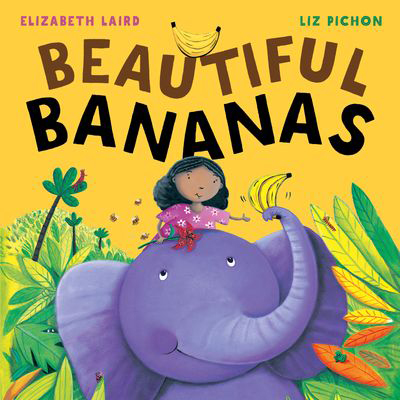As a Headteacher of a primary school, I see the huge difference that a child’s vocabulary makes to their learning every day.
A rich vocabulary allows children to say exactly what they mean. Knowing and using lots of words helps them to understand what others are saying, to talk and write in an engaging way, and to better understand the world around them.
Support from parents makes a massive difference to the number and variety of words a child knows. One of the best ways to improve your child’s vocabulary is to play word games and activities at home. Not only is this an effective way to boost your child’s future success – it can also be fun and engaging for the whole family!
Here are some ideas for fun games you can play to build your child’s vocabulary and confidence with words.
Building your toddler’s vocabulary
- Ask questions about stories. For example, ‘Is Buzz helpful to Woody? Is the Gruffalo really scary? Do you think the mouse is a clever mouse? How do you know?’
- From nursery onwards, encourage your child to answer questions in developed phrases rather than in one or two words.
- Try to add more description to your own speech. For example, saying ‘Please could you pass me the large blue spoon with the wooden handle?’ exposes your child to more words than just saying ‘Please could you pass me the spoon?’
Building your child’s vocabulary at primary school
Ideally, a new word needs to be used six to twelve times, in different ways, to be remembered long term. Here are some ideas for repeating and reusing words in interesting ways.
1. Play word games
You could explore synonyms (words that mean the same thing) together. See how many different words your child can think of for nice, pretty, or tall. Some healthy competition with friends or siblings can help to make this fun.
2. Act out abverbs
Ask your child to scamper silently, crawl slowly, scuttle rapidly, smile sweetly, or speak menacingly. Children love this!
3. Master meaning
When reading together, ask your child questions focusing around a particular word, such as:
- ‘Could we say that Verruca Salt is selfish? Why? Why not?’
- ‘Could a selfish person ever be kind? Can you give an example?’
- ‘Is Charlie Bucket selfish? Could we say he is unselfish?’
- ‘When have you been unselfish? Does unselfish mean the same thing as kind?’
4. Talk at the table
- Talk about food when you’re at the dinner table. Use interesting words to describe what you are eating: ‘My peas are not just nice and tasty – they are delicious, they are scrumptious. Do you think they are scrumptious?’
- Dinnertime is also a good opportunity to ask your child about their day. For example, you could ask, ‘What do you remember from your lessons today?’ and encourage lots of detail. You can model this by talking about your own day first.
5. Use interesting words
- When you talk to your child, try to use interesting words. For example, ‘When I gave my friend her present, she was delighted. Delighted is a strong word for happy. I’m always delighted when you help me tidy up – what makes you delighted?’
- Try to model using adjectives (words that describe nouns, like ‘yellow’ or ‘smooth’) and adverbs (words that describe verbs, like ‘happily’ or ‘quickly’) in your day-to-day speech. For example: ‘Can you smell the freshly cut grass?’
6. Discover language on the go
Visit your local museum and ask your child to describe the pictures or exhibits they see. Take your child along with you as you head off to the bank, the grocery shop, or the post office, and see what new words you can discover.
7. Play ‘word/not word’
Another way to stretch your child’s use of new words is to play ‘word/not word’. This works by choosing a word (for example, ‘delightful’), and seeing what ideas your child associates with it. For instance, you could say to your child, ‘If I say something that you love, say “delightful”. If you don’t love it, say “not delightful”.’ Then ask your child why they responded as they did.
For example, you could try these ideas: opening presents on your birthday; eating sprouts; laughing at the puppy; eating ice cream; going to bed early; reading a book; riding your bike.
Now you can vary the game, using ‘beautiful/not beautiful’, ‘hilarious/not hilarious’, ‘exciting/not exciting’, and so on.
Things worth remembering
- Try to make time for your child to give full answers. Encourage them to answer in full sentences, or starting with because.
- It’s okay for your child to make mistakes, and it’s okay for you to correct them. A gentle way to do this is to say something back to them the correct way. For example, if your child says ‘It weren’t me!’, you could respond, ‘It wasn’t you?’.
- A good idea to boost vocabulary is to watch BBC Newsround with your child and discuss the issues involved. This is great for improving your child’s understanding of the world too!
- Teach the correct word for things as they come up in conversation (for example, ‘helmet’ instead of ‘hat’ or ‘rabbit’ instead of ‘bunny’).
- Have a simple dictionary or thesaurus to hand and explore word meanings together. Googling on your phone can also be helpful if you’re not sure.
Above all, have fun and remember that children learn at different speeds!
This article was originally published in 2019.
Video: How to grow your child’s vocabulary
Children’s reading expert Jean Gross shares her top tips for supporting your child’s reading, focusing in particular on struggling and reluctant readers.

